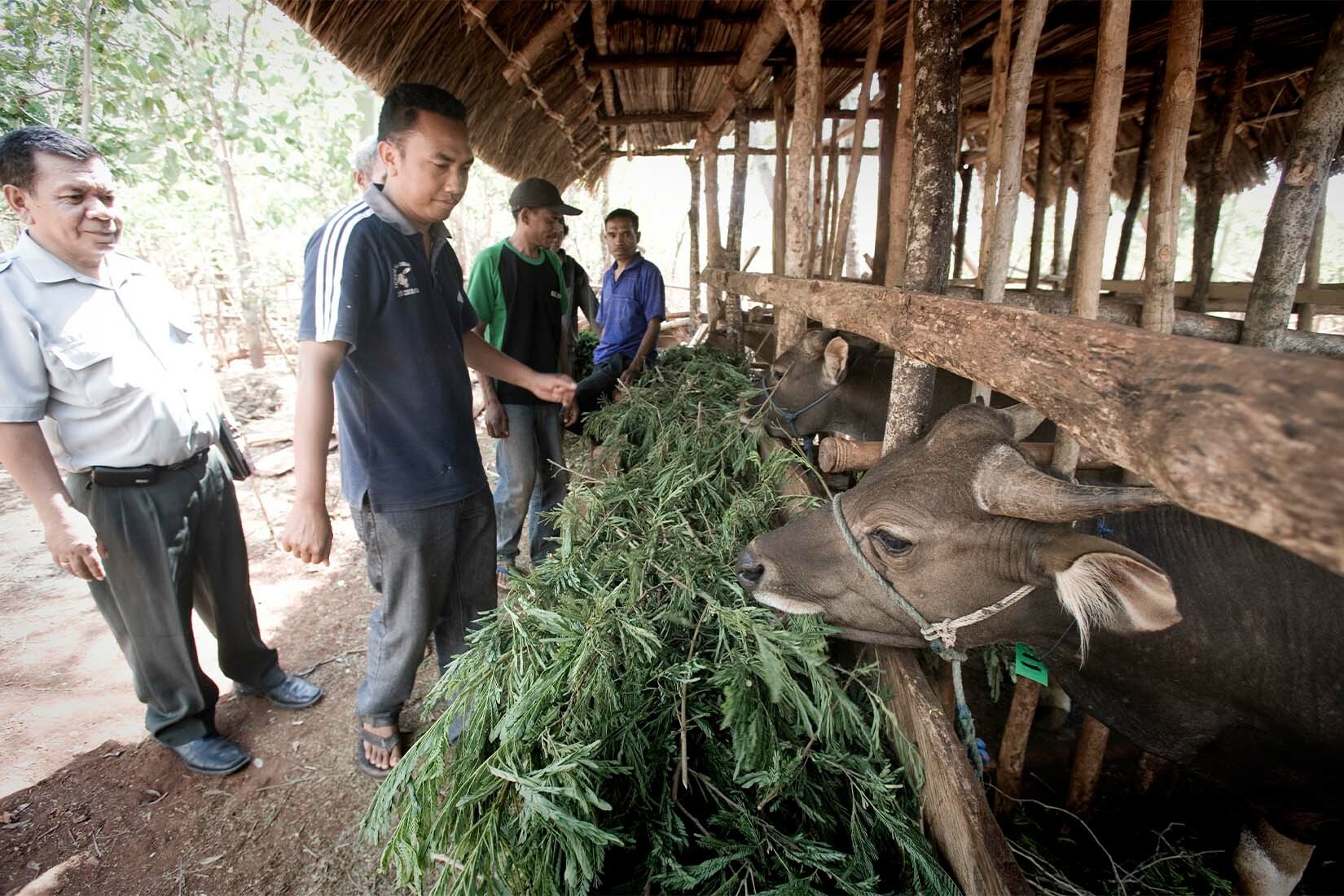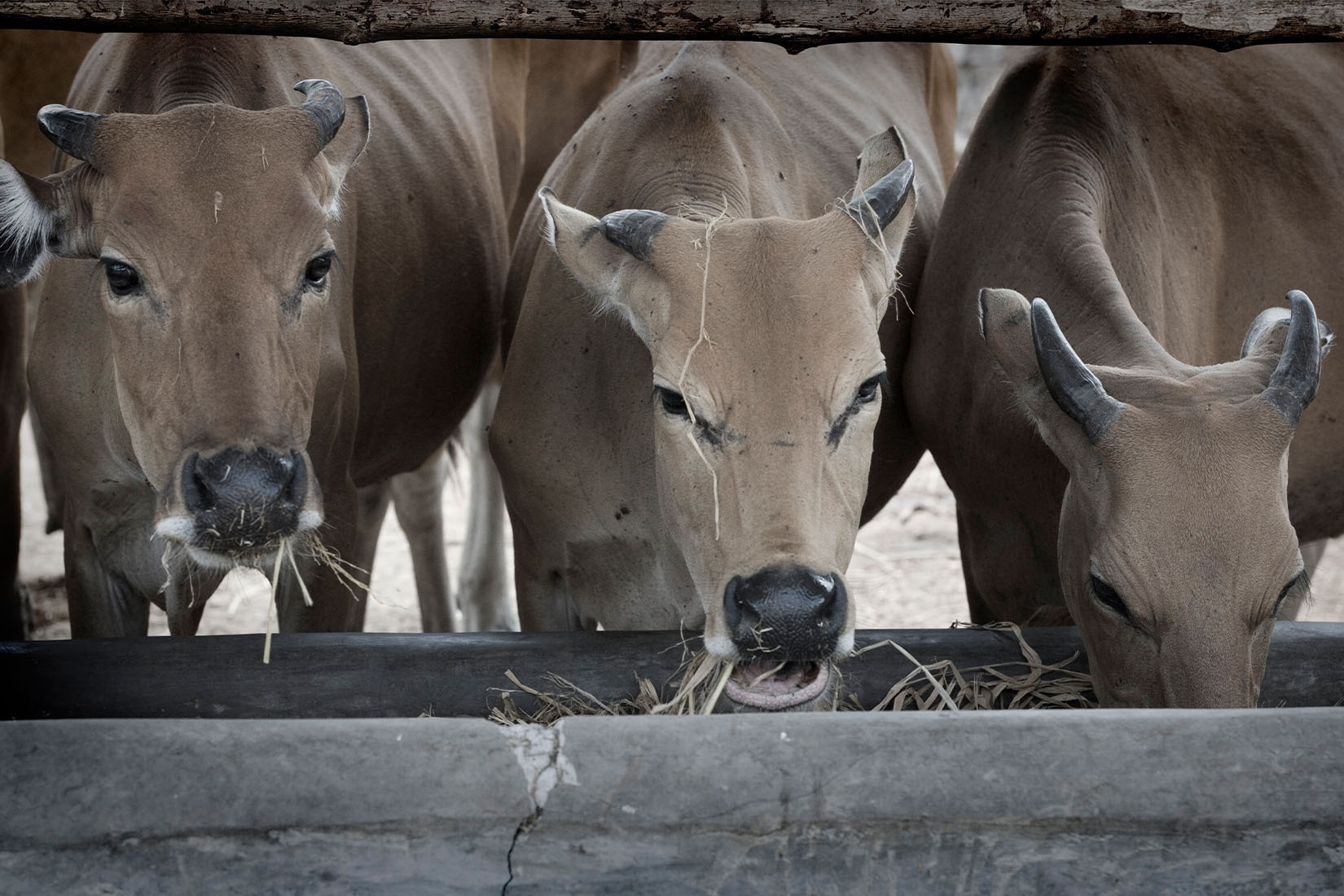



Combating brucellosis transmission in Timor-Leste
Identifying risk factors and reduce transmission of brucellosis, a zoonotic disease impacting cattle and humansThe project is part of a One Health research program in partnership with Canada’s International Development Research Centre. It uses a collaborative and integrated approach to uphold the health of humans, animals and the environment.
Led by the Menzies School of Health Research, the project targets a priority disease in Timor-Leste to protect household incomes, food security and the health of smallholder farmers.
"Brucellosis affects cattle, which are of high economic and sociocultural value to smallholder farmers in Timor-Leste. The disease results in decreased cattle productivity due to infertility, abortion and reduced weight gain," said project leader Dr Shawn Ting. "Being a zoonosis, brucellosis can also affect those working closely with cattle, such as farmers, animal technicians and slaughterhouse workers. Aside from the loss of income through missed workdays, brucellosis can significantly burden affected households, with the risk of complications, particularly for pregnant women."

The project will engage the local community using participatory design with both human and animal health stakeholders.
"In settings where there are limited resources and a relatively high prevalence of brucellosis in cattle, such as Timor-Leste, traditional top-down government approaches such as test-and-slaughter are impractical and likely to be unacceptable to farmers," said key project partner, Dr Joanita Jong, National Director of Veterinary, Ministry of Agriculture and Fisheries. "There is also often a lack of community support on control measures because awareness of the disease is poor,"
Dr Ting said Menzies’ work on this project utilises a different approach. It invites the community to gather evidence, co-design and implement brucellosis control within their village.
This project is the first of its kind in Timor-Leste to involve local communities in a co-design process while also adopting a One Health approach, considering both animal and human health perspectives.
"Understanding and articulating the risk to cattle and the potential for disease impact in humans helps to increase policy interest, resourcing and a better-coordinated response," said Dr. Ting.
Dr Ting hopes the project will also inform longer-term and national strategies with more effective interventions.
The framework for a One Health response to brucellosis at the village level could be scaled up for implementation at the municipal or national levels or modified to tackle other health priorities for the country.

Dr Anna Okello, ACIAR Research Program Manager for Livestock Systems, said the project aligns strongly with priority research areas for ACIAR and Canada’s IDRC.
"Contributing to evidence on the societal and public health benefits of animal disease control is a key pillar of the ACIAR Livestock Systems strategy. As a foodborne disease, brucellosis research also fits into the ACIAR focus on strengthening food systems and the objective of understanding the role of and better supporting the business case for One Health approaches within local communities," said Dr. Okello. "The new research is part of a wider co-investment between ACIAR and the IDRC to demonstrate and promote how a One Health approach can improve agri-food systems and overall health security."


